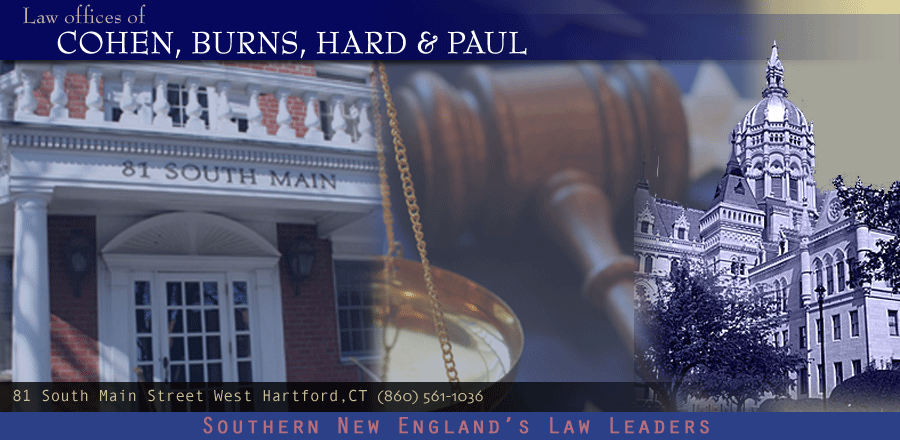
- Home
- Attorney Profiles
- Articles
- A homeowner History Lesson
- Reverse Mortgage- Tax Free Income
- Deficit Reduction Act
- Searching for an "Active Adult" home?
- Estates for Life
- Power of Attorney
- Advanced Health Care Directives
- Health Savings Accounts
- Attorney Eric Hard's Article on Jury Selection for Connecticut Lawyer Magazine
- Attorney Eric Hard Appears on Fox CT TV News to Discuss Tom Brady Deflategate Ruling
- F.A.Q.
- Contact us
Services
Practice Areas
- Real Estate
- Commercial law
- Personal injury
- Litigation
- Bankruptcy
- Landlord/tenant
- Family law
- Criminal law
Offices
81 South Main Street
West Hartford, CT
(West Hartford Center)
(860) 561-1036191 Albany Turnpike
Collinsville, CT
(Rte 44, near the Shoppes at Canton)
(860) 693-1201
![]()
Health Savings Accounts: Saving for Your Future Health and Wealth
By Suzanne Hard and Eric Hard
Recent changes in federal law make a Health Savings Account (HSA) an increasingly useful financial tool. HSAs were created in December 2003, when Congress passed the Medicare Prescription Drug Law. As part of the legislation, Congress allowed the creation of savings accounts free from federal taxation that may be used to cover medical expenses. Most states also give HSAs this tax-free treatment.
Health Savings Accounts are available to individuals and families who have a qualifying High Deductible Health Plan (HDHP). To qualify, the HDHP must have a reasonable cap on out-of-pocket expenses -- a maximum of $5,500 for individuals and $11,000 for families. The HSA is then established as an account that is owned by the employee. Contributions may come from the employer, the employee, or from a third party. HSAs allow the payment of health care expenses with pre-tax dollars; contributions are not included in taxable income. Better yet, money in the account then grows tax-free. No taxes are paid when the money is used for medical expenses. After age 65, the money may be withdrawn for any purpose, tax-free.
This year, Congress increased the amount that an individual may save in an HSA to $2,850, and the amount that a family may save to $5,650. In addition, there is a catch-up provision for HSA holders ages 55 and older: They are allowed to deposit an additional $800 this year. Next year this additional catch-up amount is $900; and, in 2009, it increases to $1000.
Health Savings Accounts have many useful features. Unlike a Flexible Spending Account (FSA), in which contributions are made tax-free for certain kinds of expenses, the money remaining in an HSA may be carried over from year to year. By contrast, FSAs have a use-it-or-lose-it feature, in which the money must be used in the calendar year in which the contributions were made. Consumers will be pleased to note, however, that money from FSAs may be rolled over into an HSA, avoiding the loss of unspent contributions.
Health Savings Accounts are owned by the employee and may be carried from job to job. The money may be used to meet the deductible component of the required HDHP and the remainder for uncovered medical expenses. It may be used to pay for dental care, eye care, eyeglasses, contact lenses, physical therapy and chiropractic care. However, it may not be used for cosmetic surgery, hair transplants, teeth whitening, or over-the-counter medications.
While Health Savings Accounts do offer tax benefits to their owners, they are not without flaws. It can be very difficult for employees to fund their HSA. In addition, employees must take extra time to pay their medical bills, and they must monitor their account, making sure they do not overcontribute. Looking at the big picture, it has been estimated that an individual will need $600,000 to cover medical expenses in retirement. Even if a person saves $2,650 each year and does not use any of it, after 20 years the account would only to amount to roughly 25 percent of what is needed.
The Health Savings Account, as currently structured, may be a useful financial tool, but it will likely play only a minor role in financing medical expenses in retirement. There has been some effort on the part of the current administration to significantly increase contribution limits. The government clearly wishes to encourage individual savings to provide resources for medical expenses as more consumers reach retirement age. As it continues to evolve, this is an area of law that should pay dividends to consumers who keep themselves informed.
Suzanne Hard is a lawyer residing in Avon, CT. Eric Hard is an attorney with the Law Firm of Cohen, Burns, Hard and Paul in West Hartford, CT. Eric and Suzanne may be contacted at ehard@cbhplaw.com, or at 860-561-4961.
Copyright 2007, by Eric Hard and Suzanne Hard. All rights reserved.